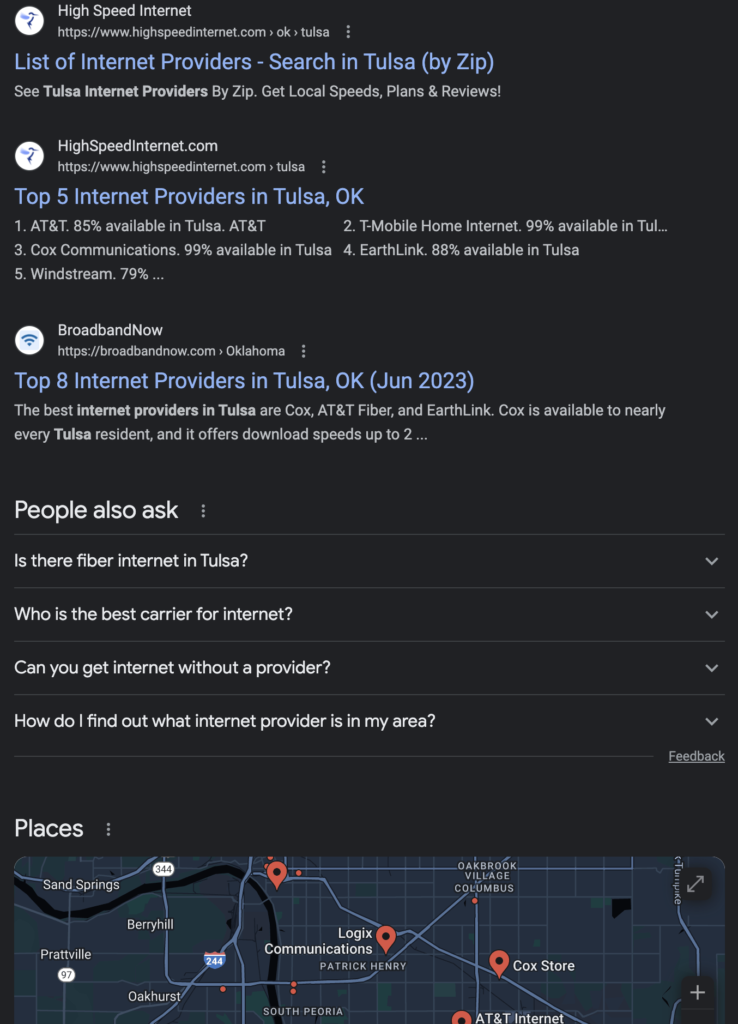Driving traffic to your website is crucial for the success of your online business. While there are various methods to attract visitors, organic traffic is often seen as the holy grail of website traffic. But what exactly is organic traffic, and how can you leverage it to grow your business? In this comprehensive guide, we’ll explore the concept of organic traffic, its benefits, and effective strategies to increase your organic website traffic.

Table of Contents
- Understanding Organic Traffic
- Definition of Organic Traffic
- Differentiating Organic Traffic from Other Traffic Sources
- Importance of Organic Traffic for Business Growth
- The Benefits of Organic Traffic
- Cost-Effectiveness and High ROI
- Long-Term Sustainability and Scalability
- Enhanced Credibility and Trust
- Targeted and Qualified Leads
- Key Factors Influencing Organic Traffic
- Search Engine Optimization (SEO)
- High-Quality and Relevant Content
- Keyword Research and Long-Tail Keywords
- On-Page Optimization Techniques
- Effective Strategies to Increase Organic Traffic
- Content Marketing
- SEO Best Practices
- Social Media Engagement and Promotion
- Influencer Marketing
- Guest Blogging
- Video Content Creation
- Leveraging Google’s “People Also Ask” Feature
- Optimizing User Experience (UX) on Your Website
- Long-Term Organic Traffic Growth
- Regularly Updating and Refreshing Content
- Building Backlinks and Referral Traffic
- Monitoring and Analyzing Website Performance
- A/B Testing and Conversion Rate Optimization
- Mobile Optimization and Responsive Design
- Leveraging Organic Traffic for Business Success
- Lead Generation and Conversion Optimization
- Building Customer Relationships and Loyalty
- Ecommerce Strategies for Organic Traffic
- Maximizing Revenue and Return on Investment (ROI)
- Tools and Resources for Organic Traffic Growth
- Keyword Research Tools
- SEO Analytics and Tracking Tools
- Content Creation and Optimization Tools
- Social Media Management Tools
- Influencer Discovery and Outreach Platforms
- Case Studies: Successful Organic Traffic Strategies
- Case Study 1: Company X Increases Organic Traffic by 200% with Content Marketing
- Case Study 2: How Company Y Leveraged SEO to Rank on the First Page of Google
- Case Study 3: Influencer Partnership Drives Organic Traffic and Boosts Brand Awareness
- Common Challenges and Solutions in Organic Traffic Generation
- Algorithm Updates and SEO Adaptation
- Content Quality and Relevance
- Competition and Niche Saturation
- Technical SEO Issues and Website Performance
- Conclusion: The Power of Organic Traffic for Business Growth
What is organic traffic? Let’s dive deeper into each section and explore the world of organic traffic and how you can leverage it to propel your business forward.
1. What is Organic Traffic?
Definition of Organic Traffic
Organic traffic refers to the visitors who land on your website through unpaid search engine results. These users find your website by entering relevant queries in search engines like Google, Bing, or Yahoo, and clicking on your website’s link in the search results.
Differentiating Organic Traffic from Other Traffic Sources
Organic traffic is distinct from other sources of website traffic, such as direct traffic (users who directly type your website URL) and referral traffic (users who arrive at your site through external links). Additionally, it is different from paid traffic, which includes visitors who click on paid advertisements or sponsored listings.
Importance of Organic Traffic for Business Growth
Organic traffic is highly valuable for businesses as it signifies that users actively search for information or solutions related to their products or services. By attracting organic traffic, businesses can reach a targeted audience, increase brand visibility, and generate qualified leads. Moreover, organic traffic contributes to enhancing search engine rankings, establishing credibility, and fostering long-term business growth.
2. The Benefits of Organic Traffic
Cost-Effectiveness and High ROI
One of the primary advantages of organic traffic is its cost-effectiveness compared to paid advertising. While paid campaigns require continuous investment, organic traffic can yield long-lasting results without additional expenses. By implementing effective organic traffic strategies, businesses can achieve a higher return on investment (ROI) and allocate their resources more efficiently.

Long-Term Sustainability and Scalability
Unlike paid traffic, which ceases once the budget runs out, organic traffic offers long-term sustainability. By consistently producing high-quality content and optimizing their websites, businesses can attract a steady stream of organic visitors over time. Additionally, as organic traffic grows, businesses can scale their efforts and reach a broader audience without incurring additional costs.
Enhanced Credibility and Trust
Organic search results are often perceived as more credible and trustworthy by users compared to paid advertisements. Achieving a high ranking in organic search results signals to users that your website is authoritative, relevant, and trustworthy. This enhanced credibility can positively impact user perception, increase engagement, and drive conversions.
Targeted and Qualified Leads
Organic traffic brings users who are actively searching for products, services, or information related to your industry or niche. These users have a specific intent and are more likely to convert into leads or customers. By targeting relevant keywords and providing valuable content, businesses can attract highly qualified leads through organic traffic, resulting in higher conversion rates and improved sales.
3. Key Factors Influencing Organic Traffic
Search Engine Optimization (SEO)
Search engine optimization is a crucial factor in driving organic traffic to your website. By optimizing your website’s structure, content, and technical aspects, you can improve your search engine rankings and visibility. Implementing on-page SEO techniques, conducting thorough keyword research, and building high-quality backlinks are key elements of a successful SEO strategy.

High-Quality and Relevant Content
Creating informative, engaging, and valuable content is essential for attracting organic traffic. By producing content that addresses the needs and interests of your target audience, you can establish your website as a reliable source of information. High-quality content encourages users to spend more time on your site, reduces bounce rates, and increases the likelihood of conversion.
Keyword Research and Long-Tail Keywords
Keyword research plays a crucial role in optimizing your website for organic traffic. By identifying relevant keywords and incorporating them strategically into your content, meta tags, and headings, you can improve your website’s visibility in search engine results. Long-tail keywords, which are more specific and less competitive, can be particularly effective in attracting targeted organic traffic.
On-Page Optimization Techniques
On-page optimization refers to optimizing various elements within your website to improve its search engine rankings. This includes optimizing meta titles, meta descriptions, header tags, and image alt tags. By adhering to on-page optimization best practices, you can enhance your website’s visibility to search engines and increase the likelihood of attracting organic traffic.
4. Effective Strategies to Increase Organic Traffic
Content Marketing
Content marketing is a powerful strategy for driving organic traffic. By creating high-quality, relevant, and valuable content, you can attract and engage your target audience. Develop a comprehensive content plan that incorporates blog posts, articles, videos, infographics, and other formats. Focus on addressing common pain points, providing solutions, and offering unique insights to establish your brand as a trusted authority in your industry.
SEO Best Practices
Implementing SEO best practices is essential for increasing organic traffic. Conduct thorough keyword research to identify relevant keywords and incorporate them naturally into your content. Optimize your website’s structure, metadata, and URLs to improve search engine crawlability. Build high-quality backlinks from reputable websites to enhance your website’s authority and visibility in search results.
Social Media Engagement and Promotion
Leverage social media platforms to promote your content and engage with your target audience. Share your blog posts, articles, videos, and other content formats on platforms like Facebook, Twitter, LinkedIn, and Instagram. Encourage social sharing and interaction to expand your reach and attract organic traffic. Engage with your followers, respond to comments, and participate in relevant industry discussions to build brand awareness and credibility.
Influencer Marketing
Collaborating with influencers in your industry can significantly amplify your organic traffic. Identify influencers who align with your brand values and target audience. Partner with them to create content, co-host events, or feature your products or services. Influencers can help you reach their dedicated followers and generate organic traffic through their recommendations and endorsements.
Guest Blogging
Guest blogging is an effective strategy for increasing your website’s visibility and attracting organic traffic. Identify authoritative websites and blogs in your industry and offer to contribute guest posts. Craft high-quality, informative content that provides value to the host website’s audience. Include a bio with a link back to your website, driving traffic from the host site to your own.
Video Content Creation
Video content has become increasingly popular and can be a powerful tool for driving organic traffic. Create engaging and informative videos that address your target audience’s pain points or provide valuable insights. Publish these videos on platforms like YouTube or Vimeo and optimize them with relevant keywords and descriptions. Embed the videos on your website to enhance user engagement and increase organic traffic.

Leveraging Google’s “People Also Ask” Feature
Google’s “People Also Ask” feature provides valuable insights into the questions and queries users have related to your industry or niche. Identify relevant questions and create content that answers them comprehensively. Incorporate these questions and answers into your website’s content, blog posts, and FAQ sections. By addressing users’ queries, you can increase your visibility in search results and attract organic traffic.
Optimizing User Experience (UX) on Your Website
A positive user experience is crucial for attracting and retaining organic traffic. Optimize your website’s loading speed, navigation, and mobile responsiveness to enhance user experience. Ensure your website is visually appealing, easy to navigate, and provides a seamless browsing experience across devices. By prioritizing user experience, you can reduce bounce rates, increase user engagement, and improve your website’s organic traffic performance.

5. Long-Term Organic Traffic Growth
Regularly Updating and Refreshing Content
To maintain and grow your organic traffic, it’s essential to regularly update and refresh your content. Review and update existing blog posts, articles, and other content formats to ensure they remain relevant and accurate. Add new information, statistics, or case studies to keep your content fresh and engaging for both search engines and users.
Building Backlinks and Referral Traffic
Building high-quality backlinks from reputable websites is a powerful strategy for increasing organic traffic. Develop relationships with industry influencers, bloggers, and content creators who can provide backlinks to your website. Create shareable content that naturally attracts backlinks and referral traffic. Backlinks from authoritative websites signal to search engines that your website is trustworthy and can boost your organic rankings.
Monitoring and Analyzing Website Performance
Regularly monitor and analyze your website’s performance to identify areas for improvement and track the effectiveness of your organic traffic strategies. Utilize web analytics tools like Google Analytics to measure key metrics such as organic traffic volume, bounce rates, time on site, and conversion rates. Use these insights to refine your strategies, optimize your content, and drive continuous organic traffic growth.
A/B Testing and Conversion Rate Optimization
Optimizing your website for conversions is essential to maximize the value of your organic traffic. Conduct A/B tests to evaluate different design elements, calls-to-action, and landing pages. Continuously optimize your website’s conversion funnels, forms, and checkout processes to improve user experience and increase conversion rates. By converting more organic visitors into leads or customers, you can maximize the impact of your organic traffic efforts.
Mobile Optimization and Responsive Design
With the increasing use of mobile devices, optimizing your website for mobile users is crucial for driving organic traffic. Ensure your website is mobile-friendly, loads quickly on mobile devices, and provides a seamless browsing experience. Implement responsive design techniques to adapt your website’s layout and content to different screen sizes. By prioritizing mobile optimization, you can attract and retain organic traffic from mobile users.
6. Leveraging Organic Traffic for Business Success
Lead Generation and Conversion Optimization
Organic traffic provides valuable opportunities for lead generation and conversion optimization. Implement lead capture strategies such as opt-in forms, gated content, or newsletter subscriptions to convert organic visitors into leads. Nurture these leads through targeted email marketing campaigns, personalized content, and follow-up communication. By optimizing your conversion funnels, you can maximize the value of your organic traffic and drive business growth.
Building Customer Relationships and Loyalty
Organic traffic is not just about acquiring new customers; it’s also about building long-term relationships and fostering customer loyalty. Provide exceptional customer experiences, personalized interactions, and valuable resources to your organic visitors. Engage with them through social media, email marketing, or online communities. By nurturing these relationships, you can turn organic visitors into loyal customers and advocates for your brand.
Ecommerce Strategies for Organic Traffic
For ecommerce businesses, organic traffic plays a critical role in driving sales and revenue. Optimize your product pages, descriptions, and images for relevant keywords to attract organic traffic. Implement SEO strategies specific to ecommerce, such as optimizing product categories, user reviews, and ratings. Leverage content marketing to provide valuable resources, guides, or tutorials related to your products, attracting organic traffic and increasing conversions.

Maximizing Revenue and Return on Investment (ROI)
By continuously optimizing your organic traffic strategies, you can maximize revenue and ROI for your business. Track the performance of different organic traffic channels, content formats, and conversion funnels. Identify the most effective strategies and allocate resources accordingly. By investing in high-performing organic traffic sources, optimizing your conversion rates, and maximizing customer lifetime value, you can achieve sustainable business growth and profitability.
7. Tools and Resources for Organic Traffic Growth
Keyword Research Tools
SEO Analytics and Tracking Tools
Content Creation and Optimization Tools
Social Media Management Tools
Influencer Discovery and Outreach Platforms
8. Case Studies: Successful Organic Traffic Strategies
Case Study 1: Company X Increases Organic Traffic by 200% with Content Marketing
Company X, an e-commerce business, implemented a comprehensive content marketing strategy to drive organic traffic. By creating informative blog posts, engaging videos, and visually appealing infographics, they attracted a targeted audience interested in their niche. They focused on interaction on social media. Through keyword optimization, social media promotion, and influencer partnerships, they achieved a 204.6% increase in organic traffic within six months. The consistent production of high-quality content and ongoing optimization efforts contributed to sustainable organic traffic growth.
Case Study 2: How Company Y Leveraged SEO to Rank on the First Page of Google
Company Y, a software-as-a-service (SaaS) provider, focused on SEO to improve their organic traffic and search engine rankings. They conducted thorough keyword research, optimized their website’s structure and content, and built high-quality backlinks from relevant industry websites. They analyzed existing articles on the site to further optimize, update, and improve the content. As a result, their website ranked on the first page of Google for 98 targeted keywords. This significant increase in organic visibility led to a substantial boost in organic traffic, brand recognition, and customer acquisition.
Case Study 3: Influencer Partnership Drives Organic Traffic and Boosts Brand Awareness
Company Z, a fashion brand, collaborated with fashion influencers to increase their organic traffic and brand awareness. The influencers showcased the brand’s products through blog posts, social media posts, and TikTok videos, generating significant engagement and organic traffic. They saw an increase in user generated content. By leveraging the influencers’ dedicated followers and their authentic recommendations, Company Z attracted a highly targeted audience and achieved substantial organic traffic growth. The partnership not only increased website traffic but also boosted sales and brand loyalty.
9. Common Challenges and Solutions in Organic Traffic Generation
Algorithm Updates and SEO Adaptation
Search engine algorithms constantly evolve, presenting challenges for organic traffic generation. Stay updated with algorithm changes, industry trends, and best practices. Adapt your SEO strategies accordingly, focusing on quality content, user experience, and ethical optimization techniques. Continuously monitor your website’s performance, analyze data, and make necessary adjustments to maintain and improve your organic traffic growth.
Content Quality and Relevance
Creating high-quality and relevant content is crucial for attracting organic traffic. Invest in comprehensive research, employ subject matter experts, and provide unique value to your audience. Regularly update and refresh your content to ensure it remains timely and accurate. Conduct content audits to identify gaps, optimize underperforming content, and align your content strategy with your target audience’s needs and interests.
Competition and Niche Saturation
In competitive industries, attracting organic traffic can be challenging due to saturation and strong competition. Differentiate your brand by offering unique value propositions, niche expertise, or innovative solutions. Focus on long-tail keywords, specific niches, or untapped market segments to carve out your organic traffic opportunities. Continuous optimization, strategic partnerships, and exceptional user experiences can help you stand out from the competition.
Technical SEO Issues and Website Performance
Technical SEO issues can hinder organic traffic growth. Conduct regular website audits to identify and resolve technical issues such as broken links, slow page loading speed, duplicate content, or crawlability problems. Optimize your website’s mobile responsiveness, user experience, and navigation structure. Address technical SEO issues promptly to ensure search engines can efficiently crawl and index your website, enhancing your organic traffic potential.
10. Conclusion: The Power of Organic Traffic for Business Growth
Understanding and leveraging organic traffic is vital for the success of your online business. By implementing effective strategies, optimizing your website, and providing valuable content, you can attract targeted organic traffic, increase brand visibility, and drive conversions. Remember, organic traffic takes time and effort to cultivate, but the long-term benefits, cost-effectiveness, and sustainability make it an invaluable asset for business growth. Stay committed to optimizing your organic traffic strategies, adapt to industry changes, and continuously measure and improve your performance. Embrace the power of organic traffic and unlock its potential to propel your business to new heights.
Remember, organic traffic is not an overnight success story. It requires a strategic approach, consistent effort, and ongoing optimization. By implementing the strategies outlined in this guide and adapting them to your specific business needs, you can leverage the power of organic traffic to drive sustainable growth and achieve your business goals.
*This post contains affiliate links. I may earn a small commission if you purchase using one of these links at no additional cost to you.*





